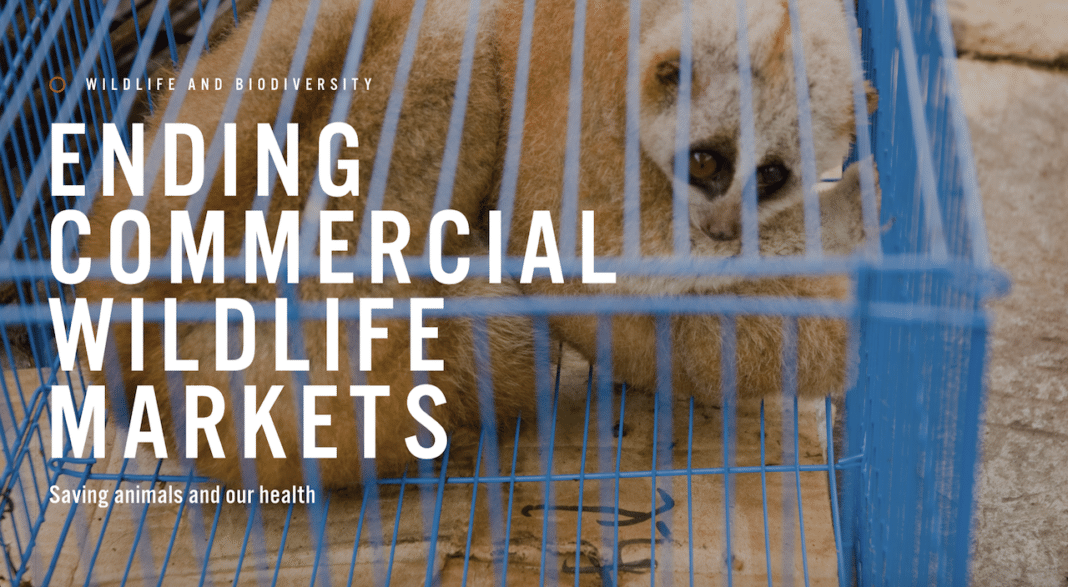London-based non-profit Environmental Justice Foundation (EJF) is calling for a ‘complete global ban’ on the wildlife markets it says are responsible for new diseases such as COVID-19.
To kick start the campaign, the charity has released a new report – Why ban commercial wildlife markets? – highlighting ‘substantial evidence’ of the markets’ responsibility for the current pandemic, stating that while ‘small, local bans’ have been introduced in some places, ‘they do not go nearly far enough to protect us’. “Commercial wildlife markets must be closed, globally and for good. Banning commercial wildlife markets will not make another deadly pandemic impossible, but it is a first step on the road to making it much less likely,” says EJF.
“Commercial wildlife markets … are rapidly depleting populations of wild animals and leave a trail of misery and destruction in their wake. Help shut them down by adding your voice now. More than two thirds of emerging infection diseases have their origins in animals. COVID-19 and other zoonotic diseases – where illness jumps from animals to humans – have been linked to cruelty-ridden commercial wildlife markets, where rare and endangered animals like pangolins, tigers and bears are kept and sold,” the charity continues in its online petition.
Hopefully we will not see another coronavirus develop in the next few months … But we should expect it in decades to come, unless bans on commercial wildlife markets are put in place
“Hopefully we will not see another coronavirus develop in the next few months or even years. But we should expect it in decades to come, unless bans on commercial wildlife markets are put in place and enforced worldwide. We have the opportunity here to safeguard species threatened with extinction, reduce cruelty to animals, and protect our economy and health at the same time. Why would we not take this simple, hugely beneficial, cost-effective action?” says Steve Trent, executive director, EJF.
The global picture
A survey of five Asian countries – Japan, Vietnam, Myanmar, Thailand and Hong Kong – conducted in April by the WWF found ‘very strong support’ in favour of closing commercial wildlife markets, with 93% of respondents saying they supported a ban, 38% believing animals are the primary source of the coronavirus pandemic and 63% believing they are one of the top two sources. The WWF also reported that such a closure would have ‘sizeable impact’ on purchasing behaviour, with 41% stating they would not buy wildlife products anymore.











